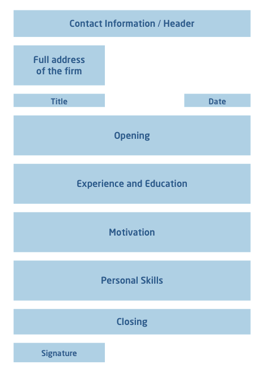Management Consulting Resume Sample

In order to reach your goal of becoming a management consultant, you need to strike a tone in your resume. In one of the most competitive fields in the working world, breaking into management consulting requires substantial work and a perfect resume.
Recruiters assume that your management consulting resume is an accurate representation of who you are. If it’s too superficial and commonplace, it might suggest that you won’t be able to make a valuable contribution to the consulting firm and your resume will therefore be put aside after a short assessment. Breaking into management consulting is a serious goal and you have to craft your resume with quality, value and uniqueness. It must be effective enough to pique the interest of the recruiters and convince them to schedule you for testing, interviews, and other assessments.
Before Writing: Know Your Target Firm
Before you turn on the computer and start typing, allot some time to investigate your target firm. Your knowledge will guide you in writing your management consulting resume; it will help you build a connection between you and your potential employer and enable you to construct a unique and personalized marketing tool. Below are some techniques on how to do this:
| Website | Visit the firm’s website. You will find their history, goals, values, and culture and learn the fundamental information about the organization. |
| Social Media | Follow their LinkedIn, Twitter, Facebook, and other social media accounts. They post links to industry trends, activities, events, and other company updates. Keep yourself abreast of these matters. If you can’t use this information for resume writing, you will benefit from it during job interviews. |
| Networking | Communicate with professionals who have worked or are working for the firm. Network with them in order to access information from an insider’s point of view. Some, if not all, will be eager to lend you a hand. |
How do these activities distinctly help you tailor your resume? First, you will be able to phrase your resume so it resonates with the individual company. Two firms may have the same values, stated in different terms. Alternate the terms in your resume to correspond with each firm you apply with. Moreover, you can emphasize content based on an individual firm’s goals. For instance, if a particular firm values leadership, it’s wise to list previous work experience and accomplishments highlighting your achievements in this area.
Writing Your Resume
Your cover letter serves as a knock at the consulting firm’s door. It may be key to your invitation to interview, but your resume deepens the picture your resume reviewer gets of your experience and background. The reviewer will probably only look at this document for a short time. All consulting firms receive many applications – this includes both boutique consulting firms as well as top tier consulting firms such as McKinsey, Bain, Boston Consulting Group and Booz. Therefore, your management consulting resume needs to provide high impact and be of a high quality. The key is preparation and outline work before you get started with the writing process.
Go through the full resume preparation and planning process. Craft a structure of your resume by brainstorming about your educational, work and volunteer (or other relevant) experiences and listing them. From there, start to narrow down the experience that is pertinent to your desired career path. Then come up with something like our resume outline (as shown below). This outline is our suggestion, based on our experience with successful management consulting applications. You can, however, use a structure that best highlights your experience in the most compelling way for you. The most important point is to offer clarity and strong, action-oriented results and achievement descriptions.
Parts of Your Management Consulting Resume

Management consulting resumes can be organized in many different ways, and many follow a pattern similar to the diagram shown.
The way you choose to organize it will depend on several factors. Your personal experience and what you want to emphasize in your resume will come into play. New graduates will probably place greater emphasis on education, academic performance and involvement in relevant extracurricular activities and internships. Experienced consultants will rely heavily on professional experience and skills.
Some of what you write may depend on the firm to which you are applying. Some firms have preferences about what you should highlight in your resume. Tailor your management consulting resume to follow any guidance you have about what the firm wants to see. Edit and revise your resume multiple times in the process. Tailor and virtually rewrite it for each new application. Your resume is a living document that changes as you gain more experience but also when you apply for different positions.
Contact Information
This is the section where you will provide basic information about yourself. It may sound easy, but here are a few techniques and reminders you may find useful:
| Name | The font size for your name must be larger than the rest of the text so recruiters can easily read and remember it. |
| Contact number | Check the accuracy of your contact number. Mixing up numbers is a huge mistake—you will never be contacted. |
| Links | Provide a link to your online portfolio, public LinkedIn profile, or blog so the recruiter can further assess you. |
| Email address | Use a professional email address. The recruiter won’t take you seriously if you use [email protected] or [email protected]. |
Summary or Objective
A summary is a brief statement of your major qualifications, expertise, and experience; an objective refers to your career goals and motivation. The former is often utilized by applicants with professional experience, while recent graduates employ the latter. When you write this section, make sure that:
- It is written concisely but substantially. It should not exceed two to three sentences.
- It must be related to the desired position and target firm.
- It must be catchy enough to encourage the recruiters to read the rest of your management consulting resume.
Here’s an example of a summary:
Here’s an example of an objective:
Here’s an example of a longer summary:
Professional Experience
A key consideration when you write about your professional experience is to measure whether or not it is relevant. Is the experience you list directly relevant to the desired position? Activities that are unnecessary to your career path only waste the limited space you have to make your case for being hired. It adds nothing and erases prime “application real estate”.
For every position you mention, describe your key responsibilities, followed by quantifiable accomplishments in bullet form. Hiring managers want results first and foremost. Use powerful terms such as verbs and numbers—they make your statements more results-oriented. Some of the suggested action words are listed in the table below:
| Addressed | Coordinated | Interviewed | Persuaded | Reviewed |
| Analyzed | Executed | Interpreted | Planned | Supervised |
| Communicated | Guided | Led | Promoted | Summarized |
| Conceptualized | Influenced | Managed | Recommended | Written |
Management consulting resume for experienced professionals would most probably state the experience section this way:
Executive Vice President, B2B Sales and MarketingManaged a team of 65 sales and marketing executives in a B2B sales structure. Guided product sales and marketing development efforts and managed sales operations. Led expansion to Southeast Asian market and selected and managed a sales team for developing Asian operations.
- Increased annual revenue by 22 percent year over year over three years.
- Expanded market for software products from Europe to North America and Asia and increased sales by 27%.
- Increased annual revenue by 1.3 million USD and achieved profitability and market share.
Here’s an example for fresh graduates:
Project Analyst, Internship Program, STU Consulting Firm, August – September 2012
Assisted a team of management consultants in collecting, analyzing, and presenting market-related information to the client. Brainstormed with experts in creating the design for market researches. Analyzed industry trends and customer preferences on women’s apparel. Notable accomplishments are the following:
- Designed a questionnaire that yielded a 80% response rate within one week.
- Conducted a field interview in shops and boutiques with only 1% data collection error.
- Wrote a qualitative analysis of research results after thorough brainstorming.
Education
For recent graduates, education plays an important role in the resume. Showing stellar academic achievement and involvement in activities that conferred new strengths and skills will help show preparation for a career in management consulting. It serves as your foundation for entering the competitive industry of management consulting. It’s the indicator of your knowledge, competencies, and values. You can include the following information in this section:
| Name of institution | You do not have to be an Ivy League grad to compete for a place at an elite consulting firm, but a big-name university with a superb reputation does not hurt. You may want to get the most mileage you can get from your school’s name. |
| Degree earned | This indicates what you learned over the past four years. It tells recruiters whether you have knowledge of accounting, management, marketing, economics, or law. |
| Grade Point Average (GPA) | Include your GPA if it’s remarkably high or if it meets the minimum requirement of the management consulting firm. |
| Remarkable academic achievements | If you graduated with honors or you received any distinctions, state it in your resume. Your determination and hard work to achieve these accolades will be taken into consideration. |
| Significant extracurricular activities | Your participation in various club activities will alert the recruiter that you have developed skills, discipline, and values that are necessary in management consulting. |
Here is a good example:
Master of Business Administration/Master of Public Administration
Key achievements: Graduated summa cum laude
Skills
Focus on relevance when adding skills. You may have a number of practical skills, but they might not be practical for management consulting. Think carefully about what skills you have, such as languages, software, negotiation/communication, and how they fit into your future career. Consider how and why a consulting firm would need or want these skills. If in doubt, find tangible examples of how a less obvious connection can be made between your skill(s) and the consulting career or leave that particular skill out of your resume.
Operations: Teambuilding, human resource management, strategy planning, competitive analysis, conflict and problem resolution, project management, risk assessment and management
Financial organization: P&L management, financial reporting, budgetary management
Communications: Developing and conducting seminars, negotiation, community outreach
Languages: Native English, native Spanish, fluent French, intermediate business Mandarin Chinese
Personal Interests
Personal interests do not need to be included in a management consulting resume, especially if you are running short on space. Interests are more often included in European CVs than American ones. You will not be penalized for failing to add personal interests. Some personal interests and hobbies, though, illustrate a certain level of perseverance, motivation and passion that may set you apart from other applicants.
Being a lifelong competitive marathon runner who trains consistently may have very little to do with consulting but does display a level of discipline and tolerance for hard work. A history of community service and voluntary work displays personal integrity and commitment. These personal traits may not fit neatly into a “skills and experience” box, but you do not want to fit too neatly into a box either. Briefly show interests where you feel it strengthens your application and makes you stand apart from your competition.
One line for interests will do, such as the example below:
- Personal Interests: Animal illustration, playing the guitar, and landscape photography.
Review the Content and Form

Once you have written your resume, proofread it to perfection. You may be able to think of better ways to represent yourself the second time you go over it. Never send out a resume without checking the content and form; your candidacy is at stake.
Below is a short checklist to ensure that your resume is perfect:
- Does it communicate the message you want to convey? Ensure that it proves you will be an asset to the firm. If you miss this part, the answers to the rest of the questions are fruitless.
- Is it tailored to the goals and requirements of the management consulting firm? It is critical that the recruiter sees that your qualities and personality match the position and the corporate culture.
- Is the data accurate? Remember that some recruiters validate the information. They sometimes enter your name in the search box, check your LinkedIn profiles, or call your previous supervisors to confirm what you’ve written.
- Is it free of typos and grammatical mistakes? These embarrassing blunders reflect poor communication skills and lack of attention to detail. Don’t give the impression that you don’t possess these basic qualities every consultant must have.
- Is the text legible? Don’t use a small font size to accommodate everything on one page, but don’t make it too large because then it occupies too much space. Fancy fonts are highly discouraged. Arial, Tahoma, Times New Roman, Calibri, and other conventional font styles are recommended.
- Does it have the correct margins? The white space around the text and in between categories makes your document reader-friendly.
- Is the length sufficient? One page is ideal, two is acceptable, but anything more than that is too long.
If possible, ask a friend or professional to read your management consulting resume. Sometimes, a fresh set of eyes can give you objective feedback.
Common Resume Mistakes
Exercise care when writing a management consultant resume, otherwise you might commit the following mistakes:
One-Size-Fits-All Approach
Some resumes end up in the trash because applicants do not consider this as a critical step or they find it too troublesome to follow the aforementioned guidelines. As a result, they end up preparing an updated, generic resume they can readily print whenever they send out an application. Is this a good idea? Yes and no. Yes, to having an updated, generic resume ready in your hard drive because it can serve as your main reference source each time you tailor your resume to fit the firm you apply to. No, to the one-size-fits-all approach because your application will always have an impersonal tone and therefore won’t catch the recruiter’s attention.
Misrepresentation of Competencies
Another common mistake is misrepresenting oneself. True, you must project your best self in your resume, but it doesn’t mean you can make up stories in order to be noticed. If you do, you are fabricating information, a violation against honesty and integrity. Even if you are successful in the preliminary screening, your capabilities will still be evaluated during the interview. If you fail to prove you possess the abilities you say you do, you will be rejected and you will realize that you have wasted your and the recruiter’s time and effort.
The Waiting Time
Even if you follow all the guidelines in this post, there is still a probability that you might not be invited to interview. Unfortunately, it’s a sad reality that there’s an abundance of applicants in this industry. You are competing against candidates as qualified as you, so after sending out your job application, you may want to:
| Interview Practice | Start practicing for fit and case interviews. These are tough recruitment tools which you better prepare for. |
| Networking | Network with people who can possibly give you a status report about your application. It’s helpful to stay in touch with someone who can follow up for you. |
| Other Options | Continue looking for other career opportunities. As long as you don’t have a signed contract in your hand, you have to keep looking. |
| Resume Buildup | Take on other jobs to build up your resume. If you think your lack of experience is the reason why other applicants are ahead of you, consider positions that can prepare you for a management consulting career. |
Remember to always be proactive in your application. Nobody said that breaking into this industry is an easy venture. Just take things one step at a time and you will get there one day.
